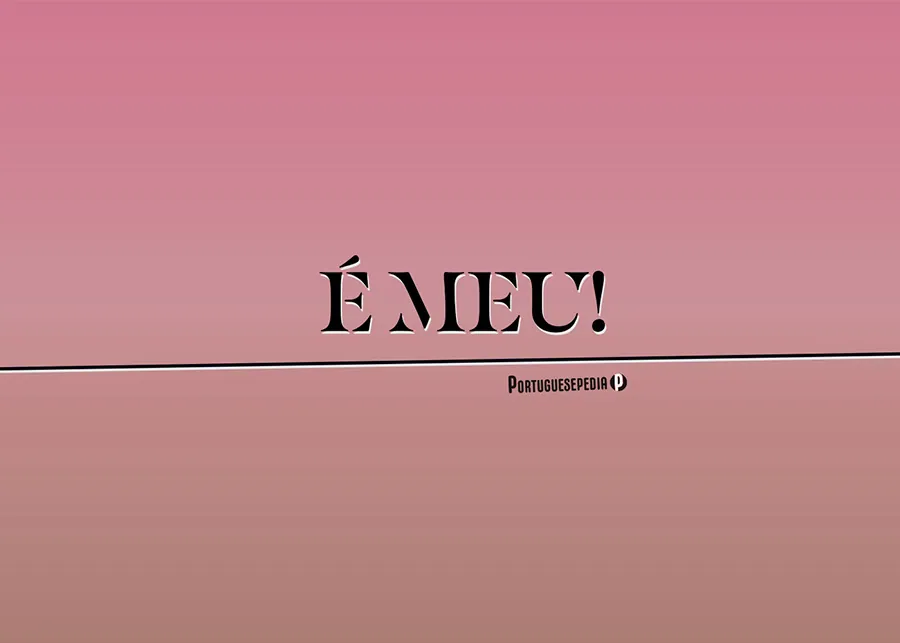
Portuguese Possessive Pronouns and Determiners
Portuguese possessive pronouns and determiners indicate possession. In English, these are words like my, your, his, her, our, their (possessive determiners) and mine, yours, his, hers, ours, theirs (possessive pronouns).
Possessive pronouns and determiners look the same in Portuguese. However, while determiners precede the noun they qualify, pronouns replace the noun altogether and thus stand alone:
| Possessive determiners (precede the noun) O meu carro é novo em folha. My car is brand new. Possessive pronouns (stand-alone) Aquele carro ali é meu. That car over there is mine. |
Read on.
Portuguese possessive determiners
| Masculine singular | Feminine singular | Masculine plural | Feminine plural | |
| my | o meu amigo | a minha amiga | os meus amigos | as minhas amigas |
| your | o teu amigo | a tua amiga | os teus amigos | as tuas amigas |
| formal your his/her * | o seu amigo | a sua amiga | os seus amigos | as suas amigas |
| our | o nosso amigo | a nossa amiga | os nossos amigos | as nossas amigas |
| your | o vosso amigo | a vossa amiga | as vossas amigas | os vossos amigos |
| their * | o seu amigo | a sua amiga | os seus amigos | as suas amigas |
* Refer to the “3-person de-possessives” below
| Trouxeste os nossos livros? Did you bring our books? Gostei muito de conhecer os teus pais. It was a pleasure to meet your parents. Não sei onde pus as minhas lentes. I don’t know where I put my lenses. |
Portuguese possessive pronouns
| Masculine singular | Feminine singular | Masculine plural | Feminine plural | |
| mine | (o) meu | (a) minha | (os) meus | (as) minhas |
| yours | (o) teu | (a) tua | (os) teus | (as) tuas |
| formal yours his/hers* | (o) seu | (a) sua | (os) seus | (as) suas |
| ours | (o) nosso | (a) nossa | (os) nossos | (as) nossas |
| yours | (o) vosso | (a) vossa | (as) vossas | (os) vossos |
| theirs* | (o) seu | (a) sua | (os) seus | (as) suas |
* Refer to the “3-person de-possessives” below

Olá! I'm Pedro and I'm your Portuguese teacher.
Ready to unlock the beauty of European Portuguese? Portuguesepedia is your key! This all-in-one platform provides a wealth of learning resources, from bite-sized video lessons to immersive idiomatic dips. Perfect your pronunciation and aural comprehension with listening drills and solidify your grammar with in-depth articles. Start your Portuguese journey today!
Share this article
Get my guide "Key Strategies to Learn Portuguese" for FREE.
